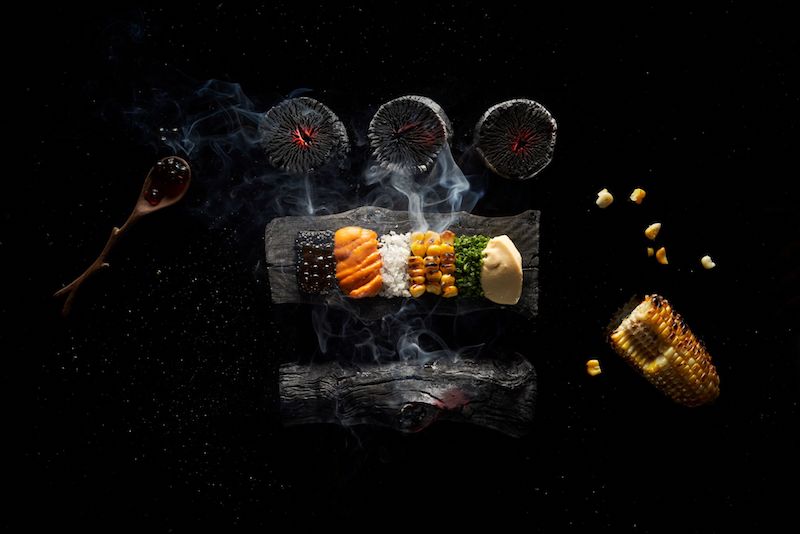COCONUTS HOT SPOT — The humble binchotan charcoal has roots that date as far back as the Golden Age of the Edo period in ancient Japan, with its usage traced to a craftsman named Bichū-ya Chōzaemon, who began producing it some time between 1688 to 1704 from ubame oak in Tanabe, Wakayama.
Hundreds of years and wars later, the Wakayama prefecture continues to be a major producer of quality white charcoal, and binchotan is now the default choice for chefs who want to grill food items with significantly less charring and a deep smoky flavor without the burnt odor familiar with regular charcoal.
Like its namesake, Le Binchotan’s newly revamped menu pays homage to the craft and history involved in the making of binchotan charcoal — even its desserts hold a slight tang of chargrill. As you would postulate from its name, the raison d’être for the Amoy Street eatery is to combine French culinary techniques and the centuries-old art of Japanese grilling.
A prime introduction is the Uni and Caviar ($25), a delicate burst of textures and flavor comprising of a savory corn mousse topped with grilled kernels of Japanese corn, a generous layer of sturgeon caviar, a heap of bafun uni, and house-made shoyu pearls. Hop on afterwards to the Binchotan Burnt Aubergine ($12), with a chilled skinless Australian aubergine served with a dressing made with yogurt, white sesame seeds, sesame oil, and a dash of Japanese chilli oil before deep-fried wild rice grains get sprinkled all over.
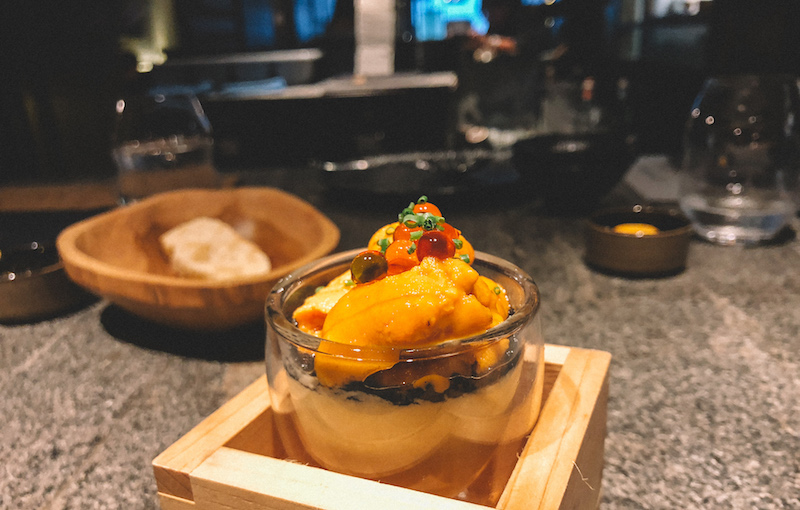
Shaped by his classical culinary training in Parisian kitchens and his experiences as a Singapore Airlines air steward, Le Binchotan’s Chef Jeremmy brings precision, craft, and tradition to his cooking — glee, too. Which other eatery pays tribute to binchotan charcoal by making hearty spring rolls that look like the charcoal itself?
The Edible Charcoal ($23) involves Angus beef short ribs slow-cooked in saikyo miso and port wine until fork-tender before being pulled apart and used as filling for spring rolls that are coated in fine bamboo charcoal. Cutting into all that deep richness is an accompanying garlic yogurt and generous sprinkles of shichimi togarashi.
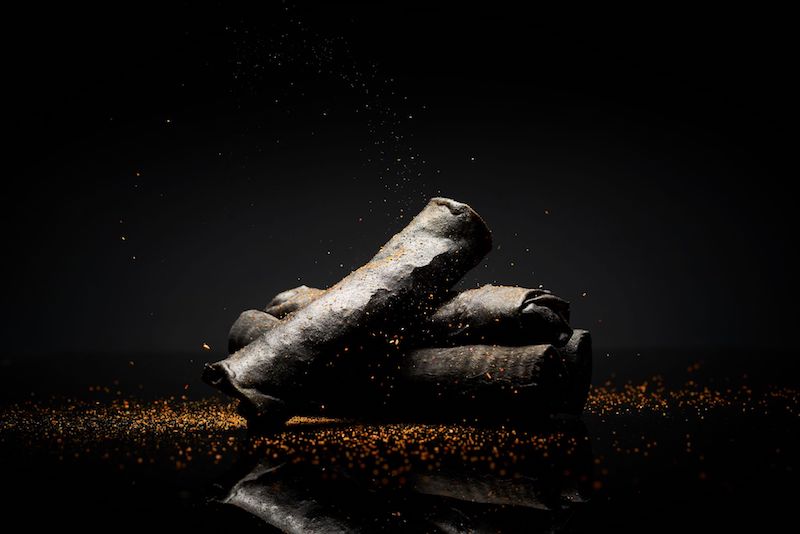
Continue the lavish meal with the Char-Pork Jowl ($35) — with the meat marinated and cooked slowly in duck fat and whole garlic before it’s grilled on binchotan. Dip it in the house-made curry cream sauce, a delicate version of Japanese curry made with garlic, shallots, curry powder, mashed green apples, and white wine.
For those not on the ketogenic diet, must-have carb-filled entrées come in the form of mushroom risotto ($29) with enoki and shimeji mushrooms, and Sakura Ebi Capellini ($27), a fragile pasta dish that balances European and Asian flavors.
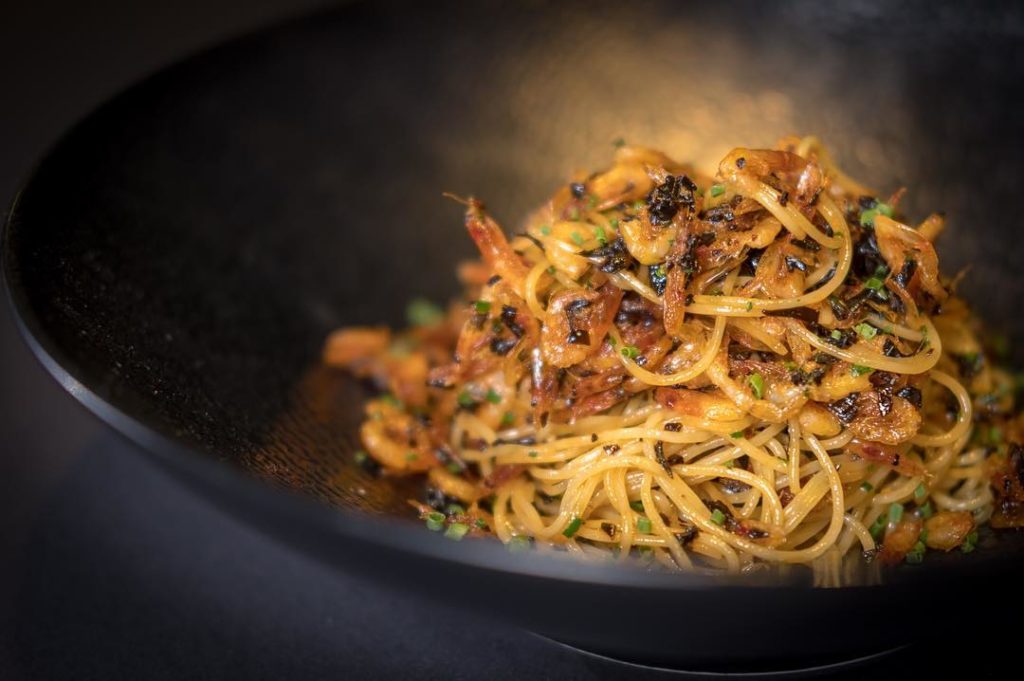
Not forgetting its roots as a back-alley bar, Le Binchotan also offers a variety of amazing drinks that could go as simple as beers and sakes or as complex as signature cocktails, like the literally dazzling self-titled drink ($23) that involves blended whiskey, charcoal, Yuzu, Togarashi, and bitters.
There’s also the feminal Floral Enchantment ($22), a fancy cocktail made with Botanist gin, St. Germain elderflower, mint syrup, muscat liqueur, and lemon. Or you could just go off-menu and have the bartender serve up the bespoke beverage of your alcoholic dreams.
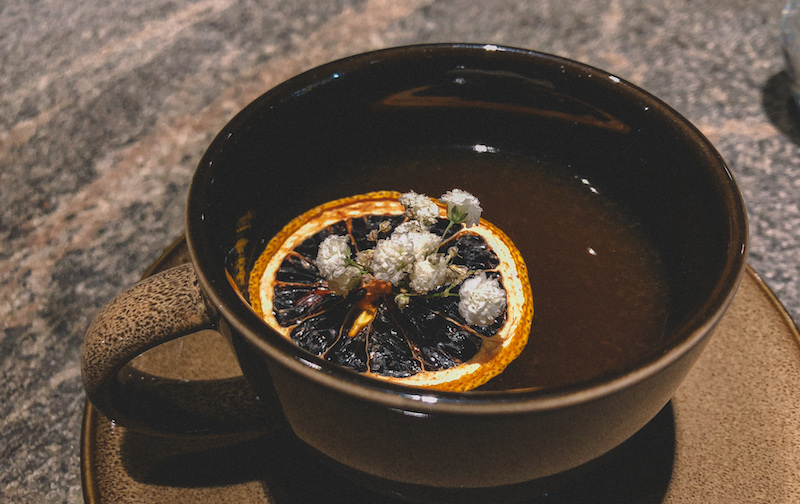
Like we mentioned earlier, even the desserts waft of binchotan smokiness. The Smoked Chocolate ($15) consists of 64% Valrhona dark chocolate cold-smoked with apple wood, melted with butter, and folded into a butter mix. After it’s baked, the confectionary is smoked one more time and left in a smoke-filled airtight container until serving.
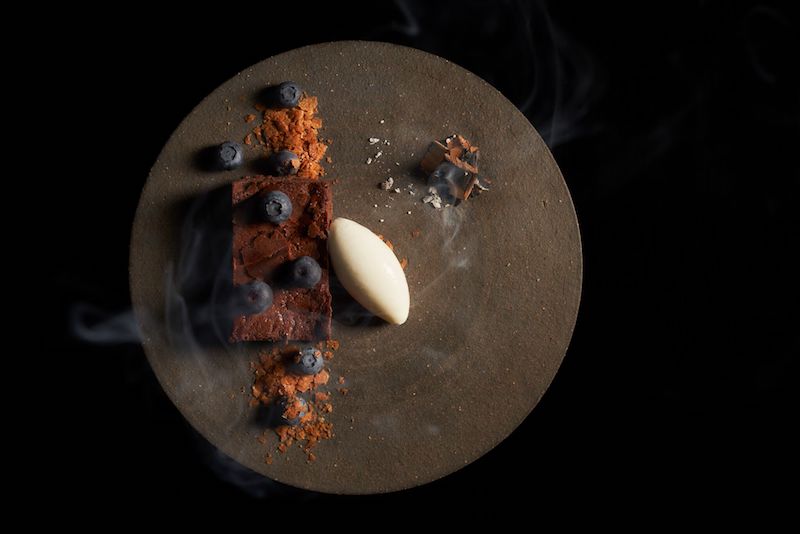
If you thought that having an authentic dining experience at the restaurant would cost you some serious cash, you thought wrong — it’s got lunch sets. Available Mondays to Fridays, a two-course meal can go as low as $27, a three-course meal $34, and a four-course meal $42, which is mad decent for quality food over quality charcoal.
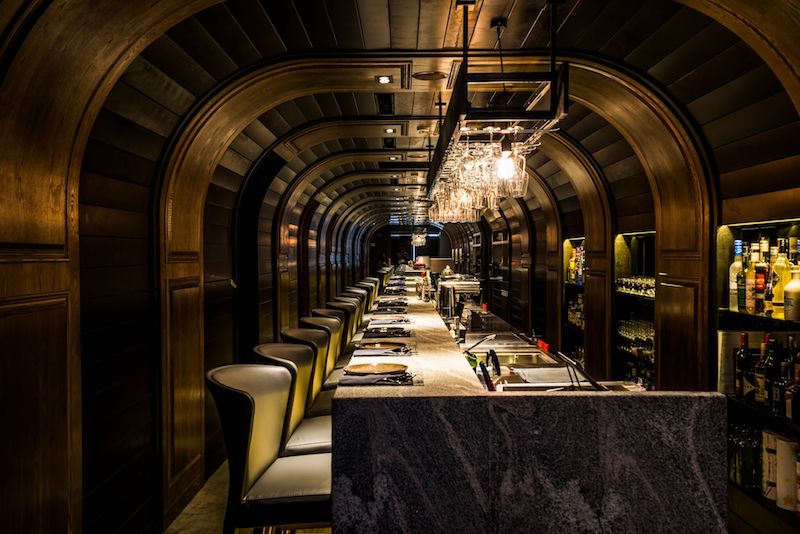
Le Binchotan is at 115 Amoy St, #01-04 (Entrance via Gemmill Ln), 6224-1045. Mon-Fri 11:30am-3pm, 6pm-midnight; Sat 6pm-midnight.
